A Comprehensive Guide to Crafting the Perfect Sichuan Fritillary and Jujube Pork Soup: Traditional Recipe and Health Benefits**
Sichuan Fritillary and Jujube Pork Soup, a cherished dish in traditional Chinese cuisine, blends delicate flavors with profound health benefits. Rooted in the principles of Traditional Chinese Medicine (TCM), this soup is revered for its ability to nourish the lungs, soothe the throat, and harmonize the body’s qi. Often consumed during seasonal transitions or times of respiratory discomfort, it serves as both a culinary delight and a therapeutic elixir. This article delves into the art of preparing this timeless recipe, exploring its ingredients, cooking techniques, and the scientific rationale behind its health claims. Whether you seek comfort during cold winters or a gentle remedy for coughs, this soup offers a holistic solution.
Historical and Cultural Context
The origins of Sichuan Fritillary and Jujube Pork Soup trace back centuries to the Sichuan province in southwestern China, where the humid climate necessitated dietary adjustments to combat phlegm and dampness. Fritillary bulbs (Fritillaria cirrhosa), native to the region’s high-altitude meadows, were traditionally used to clear lung heat and resolve phlegm. Paired with jujubes—a symbol of prosperity and health in Chinese culture—the soup became a staple in household pharmacopeias. Today, it transcends regional boundaries, appearing in modern wellness circles and global Chinese restaurants alike.
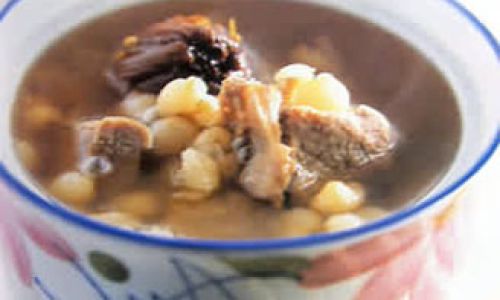
Ingredients: A Symphony of Flavor and Function
Crafting this soup requires precision in selecting and balancing ingredients. Each component serves a dual purpose: enhancing taste and delivering therapeutic value.
- Sichuan Fritillary Bulbs (Chuan Bei Mu): The star ingredient, these dried bulbs impart a subtle bitterness countered by their cooling properties. They are pivotal for alleviating coughs, reducing inflammation, and moistening the lungs.
- Jujubes (Hong Zao): These sweet, chewy dates contribute iron, vitamins, and antioxidants. They temper the fritillary’s bitterness while aiding digestion and blood circulation.
- Lean Pork: Opt for pork shoulder or tenderloin, prized for its tenderness and mild flavor. Pork provides protein and B-vitamins, making the soup a wholesome meal.
- Dried Tangerine Peel (Chen Pi): Aged citrus peel adds a citrusy aroma and aids digestion by promoting qi flow.
- Goji Berries (Gou Qi Zi): These vibrant red berries introduce a mild sweetness and are celebrated for boosting immunity and eye health.
- Fresh Ginger: A small knob of ginger warms the broth, counteracting coldness and enhancing flavor complexity.
- Wolfberries (Optional): For an extra layer of sweetness and visual appeal.
- Water: Use filtered water to ensure clarity and purity of taste.
Preparation: Step-by-Step Mastery
Ingredient Preparation
- Rinse the Fritillary: Gently clean the bulbs under cool water to remove dust. Avoid soaking, as this may leach beneficial compounds.
- Jujube Preparation: Pierce each jujube 2–3 times with a toothpick to allow flavors to infuse during cooking.
- Pork Preparation: Cut the pork into 2-cm cubes. Blanch in boiling water for 2–3 minutes to eliminate impurities, then rinse under cold water.
Assembling the Soup
- In a large earthenware pot or stainless-steel soup maker, combine the pork, fritillary, jujubes, tangerine peel, goji berries, and ginger.
- Add 1.5 liters of water (or enough to cover ingredients by 2 inches).
Cooking Techniques
- Stovetop Method: Bring to a boil over high heat, then reduce to a simmer. Cover partially and cook for 2–2.5 hours, skimming foam occasionally.
- Slow Cooker Alternative: Cook on low for 6–8 hours, allowing flavors to meld gently.
- Pressure Cooker Option: Reduce time to 45 minutes under high pressure, followed by natural release.
Seasoning and Finishing
- Avoid salt until serving, as it may toughen the pork. Instead, season lightly with sea salt or a pinch of white pepper.
- Garnish with chopped cilantro or scallions for freshness.
Scientific Rationale and Health Benefits
Respiratory Health
Sichuan fritillary contains alkaloids like peimine, which exhibit anti-inflammatory and expectorant effects. Studies suggest these compounds reduce bronchial inflammation, making the soup beneficial for chronic bronchitis or dry coughs.
Immune Support
Jujubes and goji berries are rich in polysaccharides and vitamin C, which stimulate macrophage activity—a critical component of the immune system.
Digestive Harmony
Dried tangerine peel, a carminative herb, alleviates bloating by promoting gastric motility. Combined with ginger’s anti-nausea properties, the soup aids in post-meal digestion.
Antioxidant Power
The synergy of flavonoids in jujubes and zeaxanthin in goji berries neutralizes free radicals, potentially reducing oxidative stress.
Adaptogenic Qualities
In TCM, this soup is considered an adaptogen, helping the body adapt to stress by balancing yin and yang energies.
Variations and Customizations
Vegetarian Adaptation
Substitute pork with shiitake mushrooms and konjac noodles for a plant-based version. Add kombu for umami depth.
Sweet Potato Addition
Introduce diced sweet potato during the last 30 minutes of cooking for added fiber and sweetness.
Herbal Enhancements
For干咳 (dry cough), add 5 grams of apricot kernels. For 湿气 (dampness), include 10 grams of codonopsis root.
Texture Contrast
Incorporate lotus seeds or snow fungus 30 minutes before serving for a chewy texture.
Troubleshooting Common Pitfalls
Overly Bitter Broth
- Reduce fritillary quantity by 25% or increase jujubes to balance bitterness.
- Soak fritillary in warm water for 10 minutes before cooking.
Cloudy Broth
- Avoid vigorous boiling; maintain a gentle simmer.
- Skim impurities during the initial cooking phase.
Tough Pork
- Ensure blanching time does not exceed 3 minutes.
- Use pork shoulder instead of leaner cuts for tender results.
Insufficient Flavor
- Roast jujubes and goji berries briefly before adding to the pot for caramelized notes.
- Introduce a star anise pod during cooking (remove before serving).
Cultural Serving Practices
In Chinese households, this soup is traditionally served in ceramic bowls to retain heat. It is often accompanied by steamed rice and stir-fried greens for a balanced meal. During lunar festivals, families may add red dates and longan fruit to symbolize unity and prosperity.
Modern Interpretations
Contemporary chefs experiment with molecular gastronomy techniques, such as spherifying fritillary juice or dehydrating jujubes into crisps. However, purists argue that simplicity honors the soup’s essence.
Conclusion
Sichuan Fritillary and Jujube Pork Soup transcends mere sustenance; it embodies the fusion of culinary artistry and holistic healing. By adhering to traditional preparation methods while embracing modern adaptations, this dish remains a testament to the enduring wisdom of Chinese herbal cuisine. Whether you seek respite from seasonal ailments or a nourishing family meal, this soup offers a timeless embrace of flavor and well-being. Experiment with the recipe, savor each spoonful, and let the harmony of ingredients revitalize your senses and spirit.
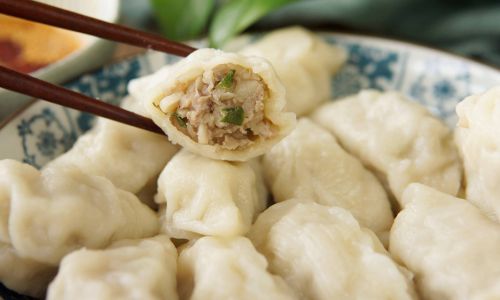
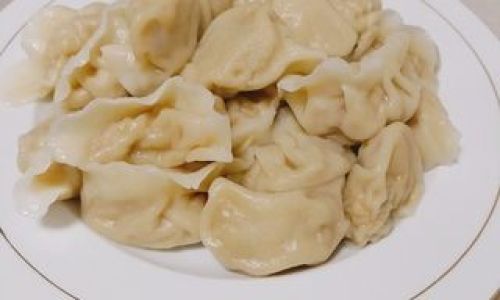
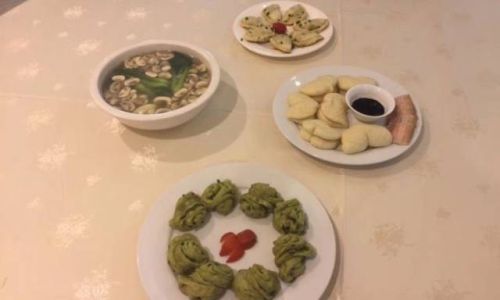
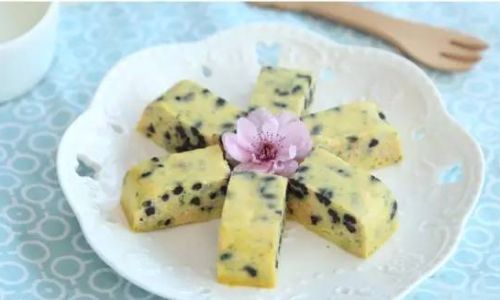

0 comments